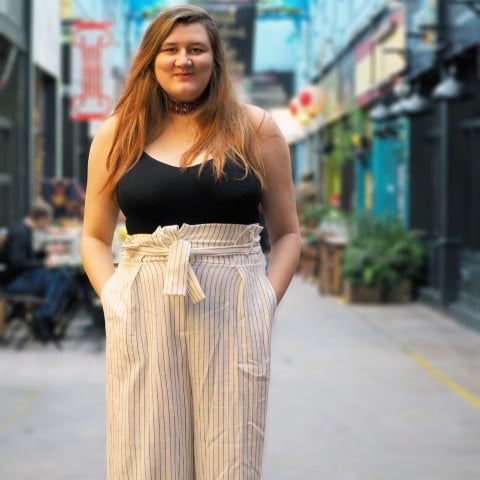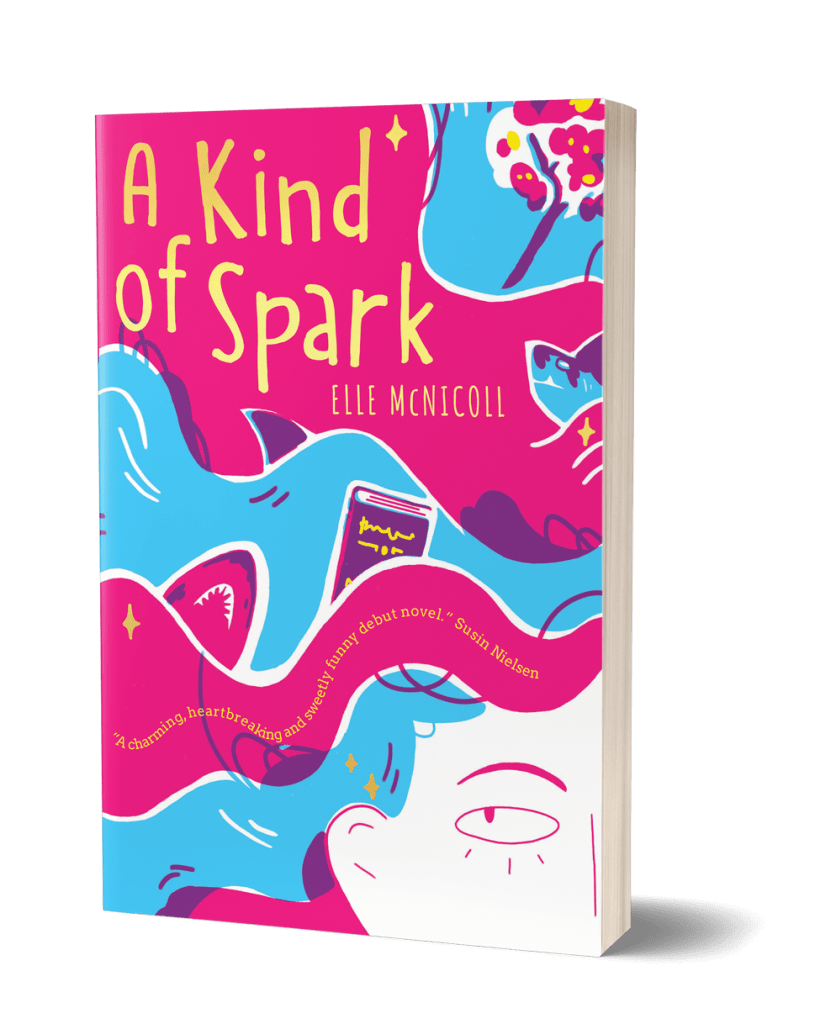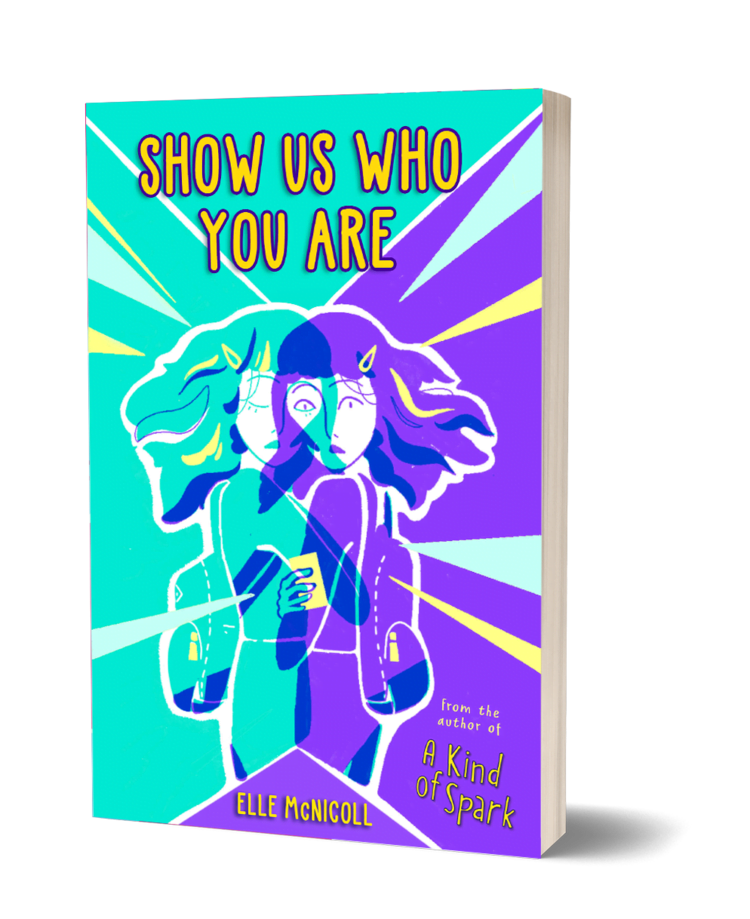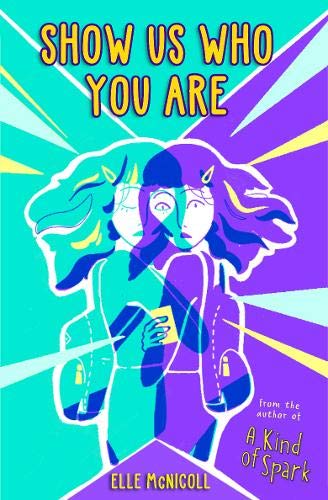It’s World Book Day and we’re thrilled to welcome author Elle McNicoll into The Reading Realm to talk to Ian Eagleton about her thrilling and moving new book SHOW US WHO YOU ARE…

Without giving too much away can you tell us about your new book Show Us Who You Are?
Show Us Who You Are is a bit of a thriller, a bit of science-fiction and a love story between two best friends. It’s about 12-year old Cora and the inner workings of The Pomegranate Institute, a company who use holograms to recreate real humans, allowing them to live forever as artificially intelligent digital doubles.
How is Show Us Who You Are similar to A Kind of Spark? How is it different?
I think they’re utterly different. A Kind of Spark was a character driven study of one girl and her community. Show Us Who You Are is an adventure with a ton to lose at the heart of it. It asks the reader a question about our humanity. Both books have a relationship at the heart. In A Kind of Spark, it was Addie and her sister Keedie. In Show Us Who You Are, it’s Cora and her best friend Adrien.

What are the challenges and joys of writing a second novel, especially after A Kind of Spark was so well received? Was it a nerve-wracking experience?
Luckily, I started writing Show Us Who You Are before A Kind of Spark came out. There were a few nice early reviews darting about but for the most part, Show was a distraction during the first lockdown. It was an escape. The challenging aspect was the fact that it was a pandemic. It’s hard to be optimistic. But with Middle Grade you have to be. I’m so proud of how hopeful and happy the book became, despite everything.
In the story, the mysterious organisation Pomegranate makes holograms of people for the public to interact with. Which famous historical figure’s hologram would you like to spend time with and why?
Maybe Robert Louis Stevenson. Or Charles Dickens. To find out who really inspired certain villains that they created.
One of the themes that the book explores is the idea of ‘digital immortality’ and the role of technology in our lives. I was really interested in the ethics of using holograms so that people can live forever and Dr Gold’s ambition to ‘keep families together forever’. What are your own thoughts and beliefs about how we use technology?
Tech is obviously a wonderful thing. It has made the pandemic and lockdown so much more bearable. It can create incredible opportunities and provide access. I can do my job because of technology, I could never write by hand—I need a computer. But the book does explore what can happen when tech is weaponised by the privileged and the powerful. I’m definitely in favour of a more egalitarian approach.

I loved the part in the story where Cora talks to Adrien about places having ‘sensory trademarks’. Can you talk to us a bit more about this?
As an ND person, my sense of smell and hearing is much stronger than the average person. This means that I use sense to identify certain things and people. I tell when someone is about to get a text, which my friends find unnerving.
Something that I think you do particularly well as a writer is portray the relationships between your characters so beautifully and make such keen observations about your characters’ body language and facial expressions. Do you spend a lot of time observing and watching people and their body language?
Yes. Another ND thing, I’m afraid.
I love the cover art by Kay Wilson! How did you feel when you saw the front cover of Show Us Who You Are for the first time?
I saw two final options. The one that we have now, and one that was teal and orange. The team couldn’t decide and so the decision came down to me. I loved both but chose purple, and I don’t regret it. Kay is a genius and I absolutely love her artwork. I’m desperate to get some prints of her covers on my wall!
In the book, you talk about songs wrapping round you like old friends and the ‘soothing balm’ that music offers us. What are you listening to and enjoying at the moment? Do you listen to music while you write?
I have to listen to music while writing. I love musical theatre and classical music, and often listen to film scores while I work. The soundtrack to Onward is a favourite right now. Also the score from Atonement.
I know you feel really passionate about all children seeing themselves in books. What are the challenges of trying to achieve this?
People who don’t care. And people who are insecure about their abled privilege. People who think writers like me shouldn’t have a voice. Apathy and hostility are both huge obstacles. But I just focus on the incredible people who do want to help.
Finally, can you describe Show Us Who You Are in three words?
Neurodivergent and proud 😉


